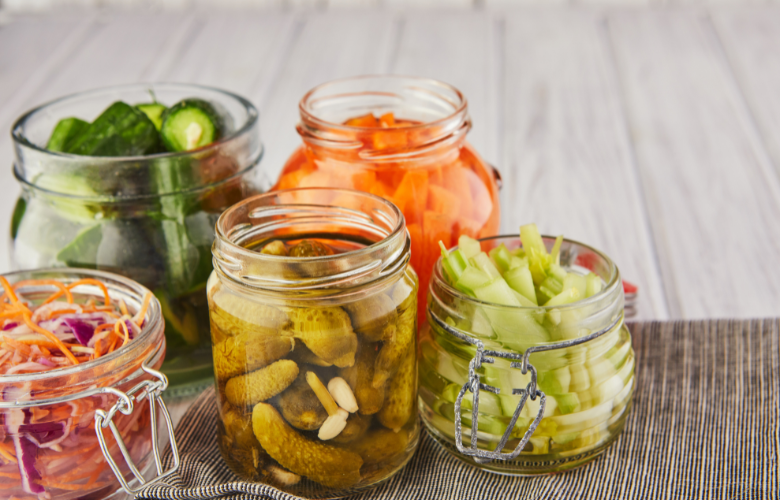Functional Medicine Approaches to Treating and Preventing UTI Symptoms
Urinary Tract Infections (UTIs) no longer have to mean frequent doctor visits. And worse, antibiotics for about seven days or more. Growing research shows that natural remedies, such as quality supplements, can help you deal with UTI symptoms. You don’t have to rely on prescription drugs anymore.
The thing is, I often encounter lots of women suffering from UTIs. Men get infected with UTIs, too. But women are more vulnerable because of their shorter urethra. This expedites the bacteria’s journey to the urinary bladder.
But guess what? Reducing your risks of getting a UTI or having it back is possible. This is the perfect time to work with a functional medicine practitioner who can design the best prevention and treatment plan so you can maintain a healthy urinary tract.
The Functional Medicine View on UTIs
Urinary tract infections happen when microbes multiply in your urinary tract after entering the urine tube. The illness may develop in your kidneys, bladder, ureters, or urethra. Bacteria are the most frequent cause of UTIs, primarily Escherichia coli, accounting for about 90%.
Urine contains waste materials but is normally sterile. That means it’s free of bacteria or other agents causing infections. So from where does, the culprit originate? From somewhere else, like the neighboring anus.
As we all know, antibiotics are the most typical method of treating UTIs. However, they can make your bladder susceptible to more infections. Yes, they can eradicate the bad bacteria responsible for the ailment. But they also destroy beneficial bacteria your body needs to fight diseases.
Antibiotics may also cause side effects. Rash, diarrhea, dizziness, and yeast infections are a few of these. There may also be more severe side effects like antibiotic resistance, which might cause further complications.
Furthermore, antibiotics can also disrupt your gut microbiota. This can negatively affect your immune system, mood, energy, and digestion. So taking antibiotics is something you would want to avoid.
Unfortunately, I see middle-aged women with chronic conditions like dysbiosis and autoimmunity. Antibiotics threaten the opportunity for their good bacteria to grow, which is essential to maximize microbiome health and immunity.
Now, here’s some great news for you! Natural therapies to prevent and treat UTIs are now drawing interest. For instance, the supplementation of probiotics is effective in treating both acute and recurrent UTIs. Certain foods have also been found helpful in easing UTI symptoms. More on that in a moment. First, let’s delve into the typical UTI symptoms.
What are common UTI symptoms?
Infections in the urinary tract don’t always show overt signs or symptoms. The frequent and urgent need to urinate is the most typical sign of a UTI. Additional UTI symptoms include:
- Cloudy, reddish, or smelly urine
- Pain or discomfort while urinating
- Lower abdominal pain
- Urinating frequently in small volumes
- A strong urge to urinate even after peeing
The following symptoms could also appear if the infection has already reached the kidneys:
- Chills
- Fever
- Nausea
- Vomiting
- Exhaustion
- Upper back and side pain
Contact a functional medicine doctor as soon as you think you might have a UTI. If left untreated, even minor infections can get worse and spread to other parts of your body. This can lead to very adverse health effects.
Natural Ways to Treat and Prevent UTIs
Here are a few natural hacks that your practitioner may recommend to help you deal with your UTI issues. This can entail changing your diet and using supplements, among other things.
1. Increase hydration.
As cliché, as it may sound, drinking eight glasses of water daily, is essential, even if you’re not thirsty. Remember, your urinary output is correlated with your fluid intake. You can also hydrate yourself with healthy drinks like fresh fruit juices to encourage diuresis and flush out the bacteria.
Fruit & Vegetable Juices
- Carrot
- Celery
- Fennel
- Blueberry
- Cranberry
- Raspberry
- Parsley
- Parsnip
- Turnip
- Watermelon
Herbal Teas or Extracts
- Diuretics: chamomile, corn silk, birch leaf, couch grass, and dandelion leaf
- Urinary astringents: cleavers, horsetail, and plantain
- Urinary demulcents: licorice, marshmallow
- Urinary antiseptics: buchu, garlic, mint, bearberry, sandalwood, and thyme
- Immune support: cat’s claw, coneflower, goldenseal, green tea, and reishi mushroom
2. Avoid bladder-irritating foods and beverages.
Certain foods can foster a bladder environment that increases your chances of acquiring UTIs. They can also hinder the effectiveness of treatment, increasing the risk of chronic or recurrent UTIs. Among these are:
- Coffee
- Alcohol
- Soda
- Acidic foods (during an active UTI)
- Spicy meals
- Chocolate
- Tomato-based products
3. Consume foods and drinks rich in prebiotics and probiotics.
Probiotics help improve your digestive health and nourish the good microorganisms in your body. In fact, one study showed that Lactobacillus probiotics were safe and effective in preventing recurrent UTIs in women. Your body can fight off harmful bacteria, such as the kind that causes UTIs.
Fermented foods are an excellent source of prebiotics. These include:
- Kimchi
- Pickles
- Kefir
- Miso
- Yogurt
- Kombucha
- Sauerkraut
- Sourdough bread
- Certain cheeses
4. Skip refined sugar products.
Are your taste buds fond of sugar? Even bacteria love them. Unfortunately, refined sugar products weaken your immune system and promote bacterial growth. Some examples are:
- Cookies
- Desserts
- White flour
- White bread
- White pasta
5. Eat Vitamin C-rich foods.
Ascorbic acid restricts the growth of germs in your urinary tract. It’s one of the simplest and most efficient ways to promote the ideal pH of your urine. Some Vitamin C-rich foods you can eat to prevent UTIs are:
- Citrus fruits
- Tomatoes
- Bell peppers
- Strawberries
- White potatoes
- Cruciferous vegetables (broccoli, cabbage, cauliflower, and Brussels sprouts)
6. Add potassium-rich foods to your diet.
Having hypokalemia or low levels of potassium can lead to recurrent UTIs. So, include some potassium-rich foods in your diet, such as:
- Fruits: avocado, bananas, cantaloupe, oranges, honeydew, and tomatoes
- Dried fruits: apricots, raisins, dates, and prunes
- Leafy greens: beet greens, spinach, and Swiss chard
- Legumes: lentils, white beans, adzuki beans, pinto beans, and navy beans
- Nuts: almonds and cashews
- Seafood: salmon, tuna, mackerel, halibut, and snapper
- Dairy: low-fat or skim milk and plain yogurt
7. Maintain a high-fiber diet.
High-fiber foods help in clearing your body of harmful microorganisms. Additionally, they promote healthy digestion and regular bowel movements. This helps lessen pressure in your urinary tract. Your practitioner may want to test for food sensitivities to avoid complications.
The following are a few examples of high-fiber foods:
- Whole grains: whole-wheat bread, oats, and quinoa
- Fruits: apples, pears, and kiwi
- Root vegetables: yams, sweet potatoes, and radishes
8. Don’t hold in your urine.
Always use the restroom when you need to. Holding your urine might speed up the formation of bacteria in your bladder. Additionally, prolonged sitting can exacerbate bladder pain.
Supplements to Help Ease your UTI Symptoms
Here are a few supplements that can help relieve your UTI symptoms. To stay on the safe side, do not start taking any without consulting your practitioner.
D-mannose
A naturally-occurring sugar, D-mannose, can be found in your body’s cells and in various fruits. As a supplement, you can take it in powder or pill form. It can prevent infectious bacteria from sticking to and infecting the lining of your urinary system. Also, it does not cause the typical side effects of antibiotics, such as nausea, yeast infections, and gastrointestinal issues.
Lauricidin
Lauricidin is another dietary supplement that may help treat UTIs not brought on by E. coli. It effectively combats several harmful bacteria and won’t harm the good bacteria in your gut. It is also known for promoting a healthy digestive system and preventing reoccurring UTIs.
Lactoferrin
Lactoferrin is another dietary supplement that can be beneficial if you frequently have UTIs. It has potent antioxidant, antiviral, and antibacterial properties. A 2019 study shows that it can help reduce the burden of bladder bacteria. By attaching to iron, it prevents bacteria from using it to spread through your body.
Final Thoughts About Treating UTI Symptoms
If you or a family member is suffering from UTI, consult a functional medicine specialist immediately for a proper treatment plan. Knowing what to eat and drink can significantly reduce your risk of contracting this nasty infection. This can also lessen the likelihood of recurrent UTIs while preventing unnecessary antibiotic exposure.












